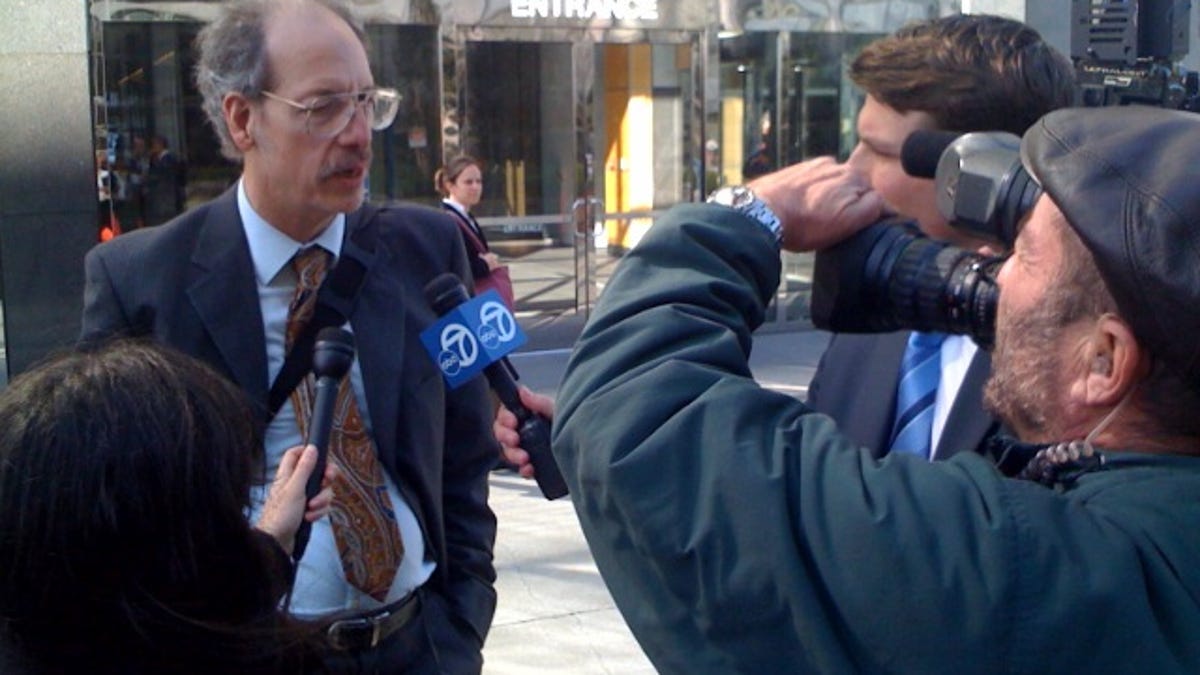Judge: Wikileaks gets its domain name back
At hearing in San Francisco federal court, judge revisits--and reverses--his order from earlier this month that pulled the plug on all of Wikileaks.

Updated at 1:42 p.m. and again at 5:02 p.m. PST.
SAN FRANCISCO--Wikileaks is getting its domain name back.
After spending more than three hours hearing arguments from a raft of attorneys--two representing the Swiss bank that fought to get the site's plug pulled and about 10 who have been trying to get the site back online--a federal judge here has ruled in favor of Wikileaks.
Wikileaks, which uses Wikileaks.org as its primary domain, is a whistle-blowing site that focuses on posting leaked documents.
"The court denies the motion for preliminary injunction, and the court hereby dissolves the injunction against (domain name registrar) Dynadot, and the litigation may now proceed," said U.S. District Judge Jeffrey White, who had called a brief recess around 11:40 a.m. PST, indicating that he was inclined to revisit his order from earlier this month that effectively pulled the plug on the Wikileaks.org domain name.
White said he will issue a written order very soon and added that he is skeptical that an injunction would survive free-speech scrutiny: "There are serious questions about prior restraint, possible violations of the First Amendment, which the court can make no definitive findings about at this point."

"The court has the obligation to get it right," White had told attorneys for Bank Julius Baer, or BJB, earlier Friday. "I took an obligation to uphold the Constitution. The court has its own obligation to raise these issues. Contrary to what you say, my obligation is to look down the road and see where this thing is going."
From the bank's perspective, it sued Wikileaks in federal court in California because the registrar, Dynadot, is located here. (Wikileaks alleges that the documents in question show that the bank supports the "ultrarich's offshore tax avoidance, tax evasion, asset hiding, and money laundering.")
But a host of free-speech groups, including Public Citizen, the California First Amendment Coalition, the American Civil Liberties Union, the Project on Government Oversight, and the Electronic Frontier Foundation, requested to intervene in the case on behalf of Wikileaks.
They threw down a series of legal land mines against BJB, including that Wikileaks can't be sued in a U.S. court by a foreign company because it consists of foreigners; that Section 230 of the Communications Decency Act prevents any action against Dynadot; that the First Amendment prohibits an overly broad attack against a Web site just to delete a subset of pages; that Dynadot cannot refuse to transfer the domain name to another registrar; and so on.
Some of the filings amounted to an implicit criticism of White, who granted the allegedly First Amendment-problematic order in the first place. So the first thing White did on Friday was defend himself--more to the half dozen reporters in the back of the room than to the attorneys.
"The parties need to understand, and those in this courtroom need to understand, the status of this case," White said. "This is a case in which we had a (dispute) with named parties, and the parties were duly served. One of which properly responded and came to this court with a proposed settlement in this lawsuit...Nobody filed any timely responses to the court's order."
While giving his ruling, White explained that the case is properly in his jurisdiction, in part because the domain name holder, an Australian citizen living in Kenya, sent an attorney to court Friday.
One attorney for BJB said there were no First Amendment problems, invoking a U.S. Supreme Court precedent dealing with an intercepted conversation played by a radio station because, "We allege, your honor, that Wikileaks has actively solicited the theft of private information...they are participants in the illegality."
BJB also said, "We're talking about private banking information, account numbers, personal numbers like Social Security numbers...all this is private information that's not newsworthy...None of the publishers here today would want their own banking information posted on the Internet."
The judge's preruling reply: "Let me play devil's advocate here. Is it newsworthy if some prominent citizen is...evading taxes, laundering funds? Wouldn't that be something in the public interest?"
(Update 5:02 p.m. PST) The judge's written opinion is out. It does three things; it denies BJB's request for a preliminary injunction; it dissolves the permanent injunction against Dynadot; and it sets a hearing schedule. One key phrase: "It is clear that in all but the most exceptional circumstances, an injunction restricting speech pending final resolution of the constitutional concerns is impermissible." As for the timing, the motions are due March 14, oppositions to those motions are due March 28, and reply briefs are due on April 4. The next hearing will be on May 16 at 9 a.m.

